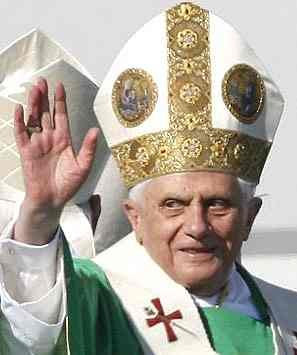 We continue evaluating Rome's claims.
We continue evaluating Rome's claims.2. Paul’s letters from prison. He greets the brethren. Nothing about Peter.
7. Jerome, in writing to Neotanius, says each church has its own bishop, archpresbyter, and archdeacon that rests on its own order. (Letters, cxx.v.56.133) There is nothing of universal, Petrine supremacy.
8. Cyprian puts the entire church under the universal church under one Head, Christ Jesus. “The episcopate is one, a `whole’ of which a part is held by each bishop. And the church is one, which is spread abroad far and wide into a multitude by an increase of fruitfulness. As there are many rays of the sun, but one light; and there are many branches of a tree, but one strong trunk grounded in a tenacious root; and since from one flow many streams, although a goodly number seem outpoured from their bounty and superabundance, still at the source unity abides undivided…So also the church, bathed in the light of the Lord, extends it rays over the whole earth; yet there is one light diffused everywhere. Nor is the unity of the body severed; it spreads its branches through the whole earth; it pours its overstreaming streams; yet there is one head and one source…” (On the Unity of the Catholic Church iii, v,, vi). That is Christ Jesus Himself as the Font, Source, Root and Head of the Church Catholic.
No comments:
Post a Comment